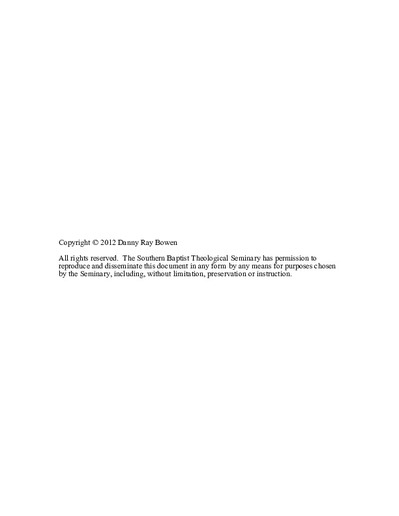A Biblical-Theological Model of Cognitive Dissonance Theory: Relevance for Christian Educators
Abstract
The purpose of this content analysis research was to develop a biblical-theological model of Cognitive Dissonance Theory applicable to pedagogy. Evidence of cognitive dissonance found in Scripture was used to infer a purpose for the innate drive toward consonance. This inferred purpose was incorporated into a model that improves the descriptive fidelity of previous research observations and extends the prescriptive facility of Cognitive Dissonance Theory.
The qualitative research design consisted of five phases. In the first phase, individual cases were identified by examining every verb in the New American Standard Bible for potential evidence of cognitive dissonance. In the second phase, the primary researcher examined every case isolated in Phase One for the elements of cognitive dissonance using criteria from the cognitive dissonance research literature. In the third phase, outside coders repeated coding of a stratified, random sample of cases, and intercoder reliability was established. In the fourth phase, the results were analyzed and evaluated. In the final phase, a biblical-theological model was proposed.
There was an apparent progression in the type of cognitive tension experienced by people in Scripture. In the Old Testament, most cases of cognitive tension included a commitment to a decision consistent with Leon Festinger's description of cognitive dissonance. In the New Testament, particularly after Pentecost, the cognitive tension seems to have changed so that Christ-followers no longer demonstrated a commitment to a decision before experiencing cognitive tension. This change revealed cognitive tension consistent with both Piaget and Hegel. Alternatives were offered to explain the apparent progression in cognitive tension and a model was proposed that described Cognitive Dissonance Theory as a metatheory of cognitive tension that allows for subtypes of tension recognized by other researchers.
Cognitive tension in Scripture seemed to be related to a sapiential drive manifested as learning aimed at orthodoxy--rightly aligned propositional wisdom, orthopathy--rightly aligned dispositional wisdom, and orthopraxy--rightly aligned enacted wisdom. The implications and applications of these conclusions were discussed.

